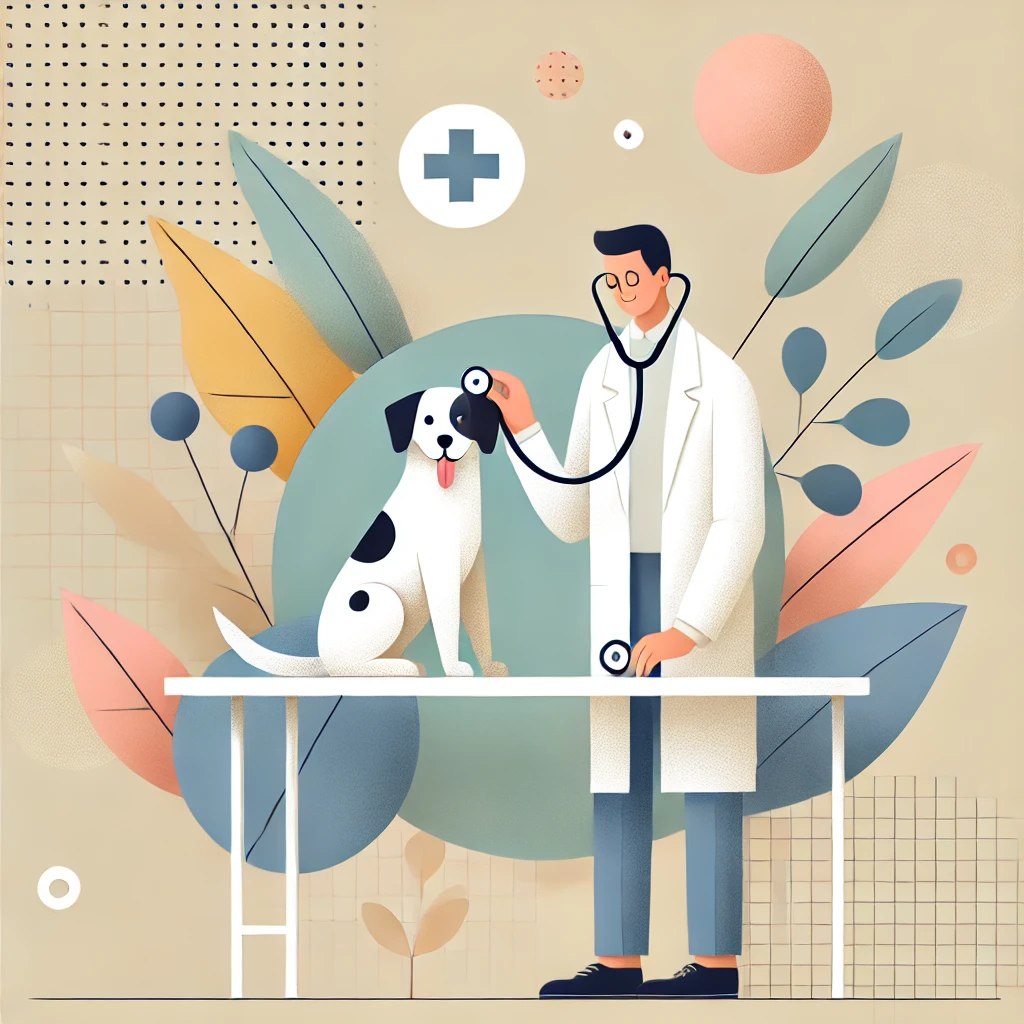Lifestyle
How to Become a Vet Tech: Easy Steps


Love animals and want to make a difference in their lives? Becoming a veterinary technician could be your ideal career path. Vet techs play a vital role in the care and well-being of animals, blending compassion, scientific knowledge, and practical skills to assist in everything from routine checkups to emergency care. Whether soothing a frightened cat, monitoring a pet’s recovery, or educating owners about proper care, a vet tech’s work is impactful and fulfilling.
In this article, we’ll guide you through the essentials of becoming a vet tech—from understanding the required qualifications to exploring admission tips. Get ready to embark on a journey toward a career that combines passion and purpose. Let’s dive in!
What Is a Veterinary Technician and What Does a Vet Tech Do?
A veterinary technician, or vet tech, is a skilled professional who works alongside veterinarians to provide exceptional care for animals. They perform various medical and administrative tasks, all aimed at ensuring the health and well-being of animals. Vet techs play a crucial role in clinics, hospitals, zoos, and research facilities, combining compassion with expertise.
Vet techs are often likened to nurses in human healthcare. While veterinarians focus on diagnosing and treating illnesses, vet techs provide hands-on support during exams, treatments, and surgeries. Their work requires technical skills, a deep love for animals, and strong communication abilities to educate pet owners.
Key Responsibilities: Comparing Vet Techs, Vets, and Veterinary Assistants
Role | Veterinarian (Vet Doctor) 🩺 | Veterinary Technician (Vet Tech) 🐾 | Veterinary Assistant 📋 |
Education Level | Doctor of Veterinary Medicine (DVM), 7–8 years | Associate or Bachelor’s degree, 2–4 years | High school diploma or on-the-job training |
Primary Role | Diagnose and treat illnesses; perform surgeries | Assist with exams, treatments, and tests | Provide basic care and administrative support |
Diagnosis | Conduct full diagnostic evaluations | Collect samples, run lab tests | Restrain animals during exams |
Surgery | Perform surgeries, including advanced procedures | Prepare for surgery; monitor anesthesia | Clean and organize surgical tools |
Medication | Prescribe and administer medications | Administer medications under supervision | Assist in organizing medications |
Client Interaction | Discuss detailed care plans with owners. | Explain care instructions | Greet clients and schedule appointments. |
Animal Care | Oversee comprehensive treatment plans. | Provide nursing care, grooming, and feeding. | Clean and exercise animals |
Specialization | Oncology, surgery, behaviour | Anesthesia, emergency care | None |
Vet Tech Career Path: Steps to Success
Earn a High School Diploma
This is your starting point, building the foundation for further education.
Complete an AVMA-Accredited Program
Enroll in a 2–3-year program to gain theoretical knowledge and practical experience.
Pass the VTNE Exam
This certification qualifies you to work as a vet tech in most states.
Obtain State Licensing
Meet additional requirements as specified by your state.
Explore Specializations
Consider focusing on areas like anesthesia, emergency care, or wildlife rehabilitation for career growth.
Why Become a Vet Tech?
Being a vet tech is incredibly fulfilling. From saving lives to comforting scared animals, your work has a profound impact. While it may not be the most lucrative field, the joy of seeing a recovered animal or a grateful owner makes it worthwhile. Whether you work in clinics, zoos, or research facilities, this career combines science, care, and dedication into a role that genuinely matters.
Ready to start your journey? Becoming a vet tech is your chance to turn your animal passion into a meaningful career! 🐕🦺✨ If you’re thinking about sharing your journey into this rewarding profession, working with a professional medical essay writer can help you effectively express your enthusiasm and commitment. This career demands dedication, patience, and resilience, but the sense of purpose and satisfaction it brings makes every effort worthwhile.

Chart Your Course to Becoming a Vet Tech
Simplify your educational journey with expert writing assistance. Let professional writers help you excel in your assignments and achieve your career goals.
How Long Does It Take to Become a Vet Tech?
The time required to become a veterinary technician varies based on your educational path, personal schedule, and career goals. Typically, it takes 2 to 4 years to enter the profession, with opportunities to extend your learning through certifications and specializations.
Associate Degree in Veterinary Technology
The most common path is earning a two-year associate degree from an AVMA-accredited program. This combines classroom instruction on animal anatomy, pharmacology, and surgical techniques with hands-on clinical training. These programs equip you with the essential skills needed for a vet tech career.
Flexible and Accelerated Options
- Part-Time Programs: Ideal for those balancing work or family, these programs may take a bit longer but offer the flexibility needed to succeed.
- Online Programs: Some institutions provide hybrid or fully online options, making education accessible for remote learners.
- Accelerated Programs: In rare cases, some schools offer faster tracks for highly motivated students, reducing the timeline.
Specializations and Advanced Training
If you want to go beyond general practice, consider specializing in fields like anesthesia, equine care, or wildlife rehabilitation. These paths often require:
- 1–2 additional years of study and clinical experience.
- Completion of certification exams for your chosen specialty.
Specializations extend your timeline and open doors to higher-paying and more focused roles.
While becoming a vet tech can take 2 to 6 years, depending on your ambitions, it’s a realistic and rewarding journey. With dedication and careful planning, you can achieve a career that combines your love for animals with opportunities for personal and professional growth.
How to Become a Vet Tech: 7 Simple Steps
Becoming a veterinary technician is a rewarding and achievable goal when approached step by step. Follow this roadmap to kickstart your career.
Step 1: Earn Your High School Diploma or Equivalent
Start with a strong foundation by obtaining your high school diploma or GED. Focus on subjects like biology, chemistry, and math to build the scientific knowledge required for vet tech programs.
If available, take electives in animal science or volunteer at local shelters. These experiences will provide practical insights and give you an edge in your personal statement or application process.
Step 2: Choose Between a Vet Technician and a Vet Technologist
Before enrolling in a program, decide which career path aligns with your goals.
Veterinary Technician 🐾 | Veterinary Technologist 👩🔬 |
Education: Associate degree (2–3 years) | Bachelor’s degree (4 years) |
Role: Assist vets in clinical tasks like administering | Advanced responsibilities like research and managerial roles |
Salary: $36,000–$43,000 annually | $45,000–$60,000 annually |
Work Settings: Clinics, hospitals, shelters | Research labs, universities, specialty facilities |
Your decision will depend on the time you can dedicate to education and your career aspirations.
Step 3: Enroll in an AVMA-Accredited Vet Tech Program
Join an AVMA-accredited program to gain the skills and knowledge needed for the field. These programs cover a mix of theory and practice, including:
- Animal anatomy and physiology
- Pharmacology and laboratory procedures
- Surgical preparation and anesthesia monitoring
Many programs also offer externships, providing real-world experience.
Step 4: Complete Clinical Experience or Internship
Practical experience is a vital part of your education. Through internships or clinical rotations, you’ll:
- Work under licensed veterinarians or vet techs
- Gain hands-on experience with animals
- Build confidence and industry connections
Step 5: Pass the Veterinary Technician National Exam (VTNE)
The VTNE is a standardized exam that tests your veterinary knowledge and skills. To prepare:
- Use study guides and practice exams
- Join peer study groups
- Utilize online resources, flashcards, and tutorials
Passing the VTNE is essential for obtaining your professional credentials.
Step 6: Obtain State Licenses and Certifications
After passing the VTNE, fulfill your state’s credentialing requirements, which may include:
- Additional coursework or exams
- Background checks
- Continuing education credits
You’ll earn titles like Certified Veterinary Technician (CVT), Licensed Veterinary Technician (LVT), or Registered Veterinary Technician (RVT), depending on your state and program.
Step 7: Start Your Career
With your qualifications in hand, it’s time to start job hunting. A vet tech degree opens doors to various roles, such as:
- Veterinary Technician in clinics or hospitals
- Surgical Veterinary Technician
- Emergency and Critical Care Vet Tech
- Zoo or Wildlife Rehabilitation Vet Tech
- Veterinary Laboratory Technician
Each position offers unique opportunities to work with animals and make a difference.
Bonus Step: Explore Specializations
As you gain experience, consider specializing in areas like:
- Emergency and critical care
- Marine animal health
- Equine medicine
- Animal behavior
Specializations often require additional certifications but can lead to advanced roles and higher salaries. Read more about other professions that might interest you: How to become a nurse practitioner and steps to become a doctor.
Important Skills for Vet Techs
Becoming a successful veterinary technician involves mastering a mix of technical and interpersonal skills. Both hard and soft skills are essential for excelling in this rewarding career.
Hard Skills
Hard skills are learned through formal education, practical training, and experience in the veterinary field. They are critical for performing clinical and technical tasks.
Skill | Description |
Clinical Expertise 📚 | Deep knowledge of veterinary medicine, including animal anatomy, physiology, and pharmacology, ensures accurate care and treatment. |
Laboratory Techniques 💉 | Ability to perform diagnostic tests such as blood work, urine analysis, and sample collection. |
Surgical Assistance 🛠 | Proficiency in preparing animals and surgical tools, monitoring anesthesia, and assisting during procedures. |
Equipment Operation ⚙️ | Familiarity with operating medical equipment like X-rays, ultrasounds, and anesthesia machines. |
Pharmacological Knowledge 💊 | Understanding medication uses, proper dosages, side effects, and administration techniques. |
Radiology 📸 | Skills in capturing and interpreting X-rays and other diagnostic images for accurate diagnoses. |
Recordkeeping 📋 | Maintaining detailed and accurate medical records for animals under your care, including treatments and test results. |
Soft Skills
Soft skills are personal attributes and social abilities that enhance communication, empathy, and adaptability, making vet tech effective in their role.
Skill | Description |
Communication Skills 🗣 | Ability to explain medical information clearly to pet owners and work seamlessly with colleagues. |
Empathy and Compassion ❤️ | Recognizing the emotional needs of pets and their owners and providing support during difficult times. |
Attention to Detail 🔍 | Ensuring precision in following protocols, recording data, and monitoring changes in animal health. |
Teamwork 🤝 | Collaborating with veterinarians and other staff to deliver high-quality care. |
Time Management ⏰ | Balancing clinical and administrative responsibilities effectively to prioritize animal care. |
Adaptability 🌊 | Responding to unexpected situations, such as emergencies, with flexibility and professionalism. |
Stress Management 😌 | Staying composed and focused in high-pressure environments, especially during emergencies. |
Veterinary technicians rely on these combined skills to provide excellent animal care while maintaining positive relationships with pet owners and veterinary teams. Hard skills ensure technical accuracy, while soft skills foster compassion and effective communication, which are key to thriving in this field.
Online Vet Tech Programs
For those seeking a flexible path to becoming a veterinary technician, online vet tech programs offer a convenient alternative to traditional on-campus education. Below are some excellent options accredited by the American Veterinary Medical Association (AVMA) and its Committee on Veterinary Technician Education and Activities (CVTEA).
Top Online Vet Tech Programs
Dallas College
- Location: Lancaster, Texas
- Program: Veterinary Technology Distance Education Program
- Duration: About 24 months
- Key Features:
- Combines traditional and distance learning components
- Accredited by AVMA and partnered with the American Animal Hospital Association (AAHA)
- Flexible scheduling allows enrollment during fall, spring, or summer semesters
Northern Virginia Community College
- Location: Loudoun, Virginia
- Program: Veterinary Technology
- Duration: 2 years
- Key Features:
- Specializations in primary care, anesthesia, surgery, dentistry, emergency care, and more
- Graduates are prepared for careers in various veterinary specialties
Penn Foster College
- Location: Online
- Program: Veterinary Technician Program
- Duration: 12 months
- Key Features:
- Partnerships with major organizations like VCA, Banfield, and BluePearl
- Courses include medical nursing, radiography, clinical pathology, medical math, and parasitology
St. Petersburg College
- Location: St. Petersburg, Florida
- Program: Vet Tech Program
- Duration: 36 months
- Key Features:
- Comprehensive clinical experience
- Access to a state-of-the-art $11 million veterinary technology facility
- 93% job placement rate for graduates
Purdue University
- Location: West Lafayette, Indiana
- Program: Veterinary Technology Program
- Duration: 36 months
- Key Features:
- 27 didactic courses and 18 clinical mentorships
- Focus areas include diagnostic imaging, pharmacology, anesthesia, and small and large animal nursing.
No matter which program you select, you can simplify your journey toward achieving your career goals with the help of essay writer service. Skilled writers can help you write exceptional academic papers, ensuring your work stands out and aligns with your aspirations.
Vet Tech Salary Overview
As of November 2024, the median salary for veterinary technicians is approximately $40,093 annually, with entry-level positions starting at $27,968 and top earners making over $54,519. Factors like specialization, geographic location, and years of experience can significantly influence earning potential.
The demand for veterinary technicians is expected to grow by 19% over the next decade, making this a promising career choice for animal lovers.
Final Remarks
Becoming a veterinary technician is more than just a career—it’s a chance to make a meaningful difference in the lives of animals and their owners. Whether you choose a traditional or online path, the journey is filled with opportunities to learn, grow, and specialize in areas that align with your passions. While the role requires dedication, technical expertise, and compassion, the emotional and professional rewards are immeasurable. If you’re ready to turn your love for animals into a fulfilling career, now is the perfect time to take the first step toward becoming a vet tech.

Ready to Supercharge Your Studies?
Tap into the expertise of professional writers to refine your academic papers effortlessly.
FAQs
What can I do with a veterinary technician associate degree?
A veterinary technician associate degree opens doors to a wide range of career opportunities, including:
- Working in veterinary clinics or hospitals, assisting veterinarians with exams, surgeries, and treatments.
- Specializing in fields like emergency care, anesthesia, or exotic animal medicine.
- Pursuing roles in research labs, zoos, aquariums, or wildlife rehabilitation centers.
- Becoming a veterinary technician in animal shelters or rescue organizations.
- Exploring positions in the pharmaceutical or biotech industries, focusing on animal health products.
How long does it take to become a vet tech?
Typically, it takes 2 to 4 years to become a vet tech. Most aspiring vet techs complete a two-year associate degree in veterinary technology through an AVMA-accredited program. Those pursuing specializations or advanced roles may need an additional 1–2 years of education and training.
Can a vet tech become a veterinarian? Are there other career advancement opportunities?
Yes, a vet tech can become a veterinarian by completing a Doctor of Veterinary Medicine (DVM) program, which typically requires an additional 7–8 years of education and training.
Other career advancement opportunities include:
- Specializing in areas like oncology, internal medicine, or equine care.
- Becoming a veterinary technologist by earning a bachelor’s degree.
- Transitioning into roles in veterinary education as an instructor or mentor.
- Moving into research, animal behavior, or public health positions.
- Exploring management roles in large animal hospitals or corporate veterinary practices.
Sources
American Veterinary Medical Association. https://www.avma.org/education/center-for-veterinary-accreditation
BuePearl. How to Become a Vet Tech: Your Step-by-Step Guide.

